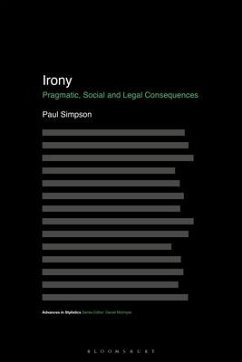Underpinning many common types of discourse, such as humour, sarcasm, politeness and satire, irony forms a crucial part of our everyday social interactions. But how well do we really understand its use, effects and consequences? In this book, Paul Simpson develops a comprehensive stylistic-pragmatic framework for understanding the concept of irony and the way it functions in written and spoken language, across different social and cultural contexts. From the Guardian's 'victory for irony' against Elton John to the tweet that sparked the Twitter Joke Trial, he showcases examples from the real world of language and communication to build an accessible model of irony, grounded in actual discursive events and their social and legal material outcomes. While we often consider irony to simply mean the opposite of what was said, Simpson reveals the full range of its theoretical complexities and nuances, shedding light on conferred irony, ironic belief and situational irony to uncover the true pragmatic meaning of everyday ironic utterances.
Hinweis: Dieser Artikel kann nur an eine deutsche Lieferadresse ausgeliefert werden.
Hinweis: Dieser Artikel kann nur an eine deutsche Lieferadresse ausgeliefert werden.








